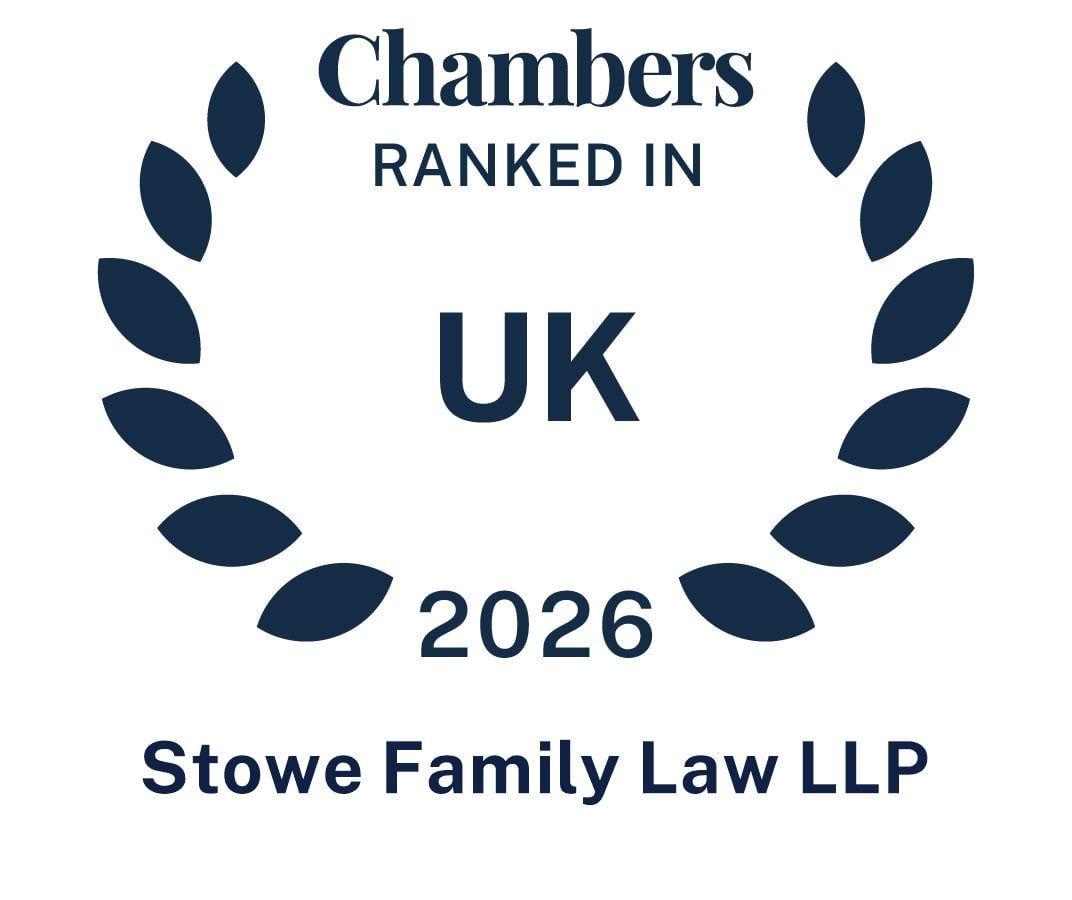Family solicitors, specialising in child custody agreements
Agreeing on child custody after a separation can be tough. Emotions can run high and decisions can be made without the best interests of your children in mind.
Our specialist child custody lawyers are here to guide you through the process, help parents and guardians to resolve issues, and set clear guidelines when it comes to the custody of children.
read moreUsing our extensive knowledge and experience, we support clients to reach an amicable solution without a court application, be it through direct communication, negotiation between solicitors or the use of non-court dispute resolution methods such as mediation or collaborative law.
If an out of court agreement cannot be reached, as a last resort, we work with clients to navigate the court process to ensure the best outcome for both them and their children.
Our team of child custody solicitors have worked with both parents and grandparents and have dealt with cases of all natures, working to achieve a positive outcome for all.
Key Child Custody Information
-
What are the types of child custody?
-
Child custody is referred to as a child arrangements order in the UK – an order implemented by the family court to determine post-divorce children matters. Sole custody and joint custody are the main types of custody, with joint custody being preferred. Sole custody can be granted to one parent over the other in cases of abuse, neglect, or parental unfitness. Other types of custody are physical, where the child resides, and legal, governing who holds responsibility for the important decisions concerning the child.
-
How do I resolve a child custody battle?
-
Ideally, you and your ex-partner would be able to agree child custody between yourselves. However, family law solicitors are on hand to support with negotiations and guide you through non-court dispute resolution methods such as mediation. Court intervention is a last resort if you cannot reach a compromise.
-
What child custody laws might you and your partner need to resolve?
-
Child custody laws can be complicated, but at the centre is the welfare of your child. When you separate or divorce, you’ll need to be aware of laws around contact, who the child lives with, how they spend their time and the responsibility of each parent. For the help you need to reach the best outcome for you and your family, reach out to Stowe Family Law today.
Our child law services

What is child custody?
In the UK child custody law determines the person(s) responsible for the care and charge of a child, after divorce or separation. The term custody can also be referred to as residency – indicating the child’s main residence, following parents going their separate ways. In the UK, child custody primarily falls into two categories: sole custody and joint custody.
read moreSole custody means that one parent has the primary responsibility for the child’s care and upbringing. This parent makes the major decisions about the child’s life, such as those concerning education and healthcare.
Joint custody involves both parents sharing the responsibilities of raising their child. This arrangement requires cooperation between the parents as they both contribute to decisions about significant aspects of the child’s life, including schooling, medical care, and general welfare.
Many child custody agreements also include rules regarding visitation. Visitation dictates when a specific party mentioned in the agreement has the right to visit or spend time with the child, or children, in question.
Meet our expert child law solicitors
We offer an award-winning service

What child custody laws might you and your partner need to resolve?
In the UK, parents may need to resolve issues related to child custody, which is now known as child arrangements. This includes a variety of different topics, such as:
- Where your children should live
- When your children should see you and your ex-partner, and when they should stay with each of you overnight
- Financial arrangements – contributions to the cost of bringing up your children in a fair way
- A potential change of the children’s names
- What school your children should attend
Coming to an agreement on child custody after a separation requires a sensitive and informed approach. We expertly navigate the legal complexities, advocating for arrangements that serve the child’s best interests and support family stability.
Why choose Stowe Family Law?
As the only national law firm fully dedicated to family matters, our expert team offers professional advice so you can make a fully informed decision about your divorce.
We are proud to be rated ‘Excellent’ on Trustpilot. Check out our reviews to see what our previous clients have said about our service.
We feature in The Legal 500 rankings and are fully authorised and regulated by the Solicitors Regulation Authority (SRA).
We keep you informed. Take a look at our support section, which features a range of helpful guides, focusing on important topics including finances and mediation.
Let's ask Legal 500
Maria Coster maintains Next Generation Partner status for 2024.Let's ask Mr W
I contacted Stowe family law after I had separated from my partner of 12 yrs. She had walked out and left me to look after my 6 yr old son, 8 months later i was taken to court by my ex partner over my son, so I turned to Stowe for help. Jemma, Rachael and the team where there for me from the first time I met them until my case was settled in court.… Read more They supported me constantly through a very tough and emotional time that lasted for over a year, they we’re always there to help and I could not of got through this without them. My heart goes out to Jemma, Rachael and the team at STOWE FAMILY LAW. A big thank you.Let's ask Legal 500
Rebecca Calden-Storr- extremely good, very good with clients, unflappable. Hannah Stubbs- one to watch. Extremely knowledgeable in the area and highly organised. Excellent.Let's ask Anon
Ciara was everything I wanted in a solicitor because of her professionalism, honesty and knowledge. I felt that Ciara went that extra mile for me because she made me feel that I was valued and important. I was very impressed with Ciara for many reasons. She built rapport and engaged very well. She also demonstrated the perfect levels of empathy an… Read mored enthusiasm so I felt that she was genuine. Ciara was very honest with me and delivered advice that I may not have liked in a friendly but fair manner. At the end of the conversation, I had such a high opinion of Ciara that I would have definitely used her to assist me.Let's ask Anon
Filomena and her team helped me through the worst time of my life. Having left an abusive marriage with my two little girls, I was living in the UK without any family support, Filomena was there every step of the way with expert advice and support. The court granted me permission to relocate to Ireland with my girls. It was a very difficult case, o… Read morene that seemed impossible to win, but thanks to Filomena, Emel and the rest of the team my children and I were able to permanently leave the UK. I will never be able to thank them enough for getting me through such a horrible time and getting us home to our family in Ireland.Let's ask Anon
I am very grateful for all your help. I’ve never been in this situation before and it makes it very challenging when the other party is making unreasonable requests.Let's ask Mrs M
As you would expect from a well established family law firm both Rebecca Moore and Angela Sussens were professional and efficient when dealing with my case. The fact is they were so much more that they exceeded my expectations in their personal approach and worked with me to understand what was important to me in order to get the desired outcome.Common questions on child custody
Common questions on child custody
-
What is child contact and access?
Child contact refers to the time a child spends with a non-resident parent. It includes both overnight stays and daytime visits. Access, often used interchangeably with contact, refers to the legal right of a non-resident parent to spend time with their child.
-
Should I hire a child custody solicitor?
Hiring a child custody solicitor is advisable, especially in complex cases where disputes arise over child arrangements. A solicitor can provide legal advice, represent you in court if necessary, and help negotiate agreements that are in the best interests of the child.
-
How much does a child custody solicitor cost?
The cost of hiring a child custody solicitor can vary depending on factors such as the complexity of the case, the lawyer’s experience, and whether the matter remains uncontested or goes to court. Fees may include hourly rates or fixed fees for specific services like mediation or court representation.
-
Who gets custody of the children after a divorce?
After a divorce in the UK, both parents are encouraged to agree on child arrangements (custody). If they cannot agree, the court will decide based on the child’s best interests. The term “custody” is not commonly used in UK law; instead, decisions focus on residence – who the child lives with – and contact – who the child spends time with – arrangements.
-
Who gets custody of the children when the parents are not married?
When unmarried parents separate, the mother automatically has parental responsibility. The father can acquire parental responsibility by jointly registering the birth with the mother, obtaining a parental responsibility agreement, or through a court order. Child arrangements for unmarried couples are determined similarly to divorce cases, focusing on the child’s welfare.
-
Are child custody and access rights always decided by the court?
Courts will only wish to get involved with issues concerning children when all other options have been exhausted.
In an ideal world, parents would be able to agree about how the children will spend time with each of them. However, for several reasons, this is not always possible.
There are several tools available on the Cafcass website, which can help to focus parents on the elements of looking after a child which should be agreed on.
-
We are having difficulty reaching an agreement about our children. What happens next?
There are a number of options available when parents are having difficulties reaching an agreement regarding the care of their children.
If you have tried to reach an agreement but cannot, it can be helpful to speak to a solicitor and seek advice as to what could be a suitable arrangement.
If there are still difficulties in agreeing then the next step would be to try mediation.
Mediators are specially trained in assisting parents in coming to an agreement, and it can be a much less stressful process.
A qualified mediator will try to ensure that the conversation remains focused, and it can often reduce any animosity between you.
There is the possibility of shuttle mediation if you do not want to be in the same room as the other parent. Some mediators will now involve the child in the process if the parents agree that it is suitable for them to do so.
If negotiation either by solicitors or through mediation is not successful, the final alternative would be to make an application to the court. Unless you are subject to specific exemptions, you will require a document (known as a MIAM) to be signed by a mediator as evidence of your attempt to resolve the issues.
-
If it becomes necessary for the court to make a decision about our children, what will it be based on?
The court will make its decision based upon what is in the best interests of the child.
When deciding on arrangements for a child, the court has to be mindful of the welfare principle and the welfare checklist.
The welfare checklist requires the court to have regard to (but not limited to) the following:
- The ascertainable wishes and feelings of the child concerned (considered in the light of his age and understanding);
- Their physical, emotional and educational needs;
- The likely effect of any change in circumstances;
- Age, sex, background and any characteristics which the court considers relevant;
- Any harm which they have suffered or are at risk of suffering;
- How capable each parent, and any other person in relation to whom the court considers the question to be relevant, is of meeting their needs.
Latest advice
Newsletter Sign Up
Sign up for advice on divorce and relationships from our lawyers, divorce coaches and relationship experts.
Privacy Policy Close newsletter modal
























